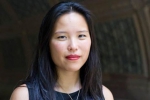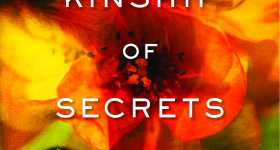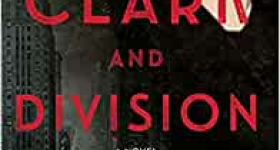When I attended the Kundiman poetry retreat in summer 2012, Timothy Yu read one of the poems that would eventually become part of his book 100 Chinese Silences. I had heard nothing like it before, and even though what would become 100 Chinese Silences was just a handful of poems back then, I sensed the importance of the collection and predicted that it would mark a significant change in the dialogue about Asians and Asian Americans in poetry, even though I was unsure of how or when. Until now.
The collection takes its title from a Billy Collins poem, “Grave.” In the poem, the speaker stands before the graves of his parents and asks them what they think of his new glasses, the response to which is silence, one of the “one hundred kinds of silence / according to the Chinese belief, / each one distinct from the others […]” Toward the end of the poem, the speaker admits to have “just made up the business of the one hundred Chinese silences.” Yu’s book takes those imaginary Chinese silences and transforms them into “testament[s] / to the noise of being Asian in America.” (“Chinese Silence No. 12”) Yu’s approach is brilliant in its wide-ranging survey of orientalist tropes in literature and public speech, referring to poets from Pound to Mary Oliver and public figures such as Marco Rubio.
As Yu says in an interview with The Volta: “In parodying the poems, I was beginning from the limited place that this orientalist discourse gave me to speak -- a place of ‘silence’ -- and seeing if I could elbow my way out of it, not by condemning it from the outside but from writing within it, trying to make it take itself apart.”
Throughout the collection, Yu addresses the spectrum of Asian American stereotypes, from “yellow peril” (“Chinese Silence No. 95” after Pound’s “In a Station of the Metro”), to sexless sage: “Now that you’re old, it’s time to turn Chinese / and cultivate a neutered silence” (“Chinese Silence No. 37” after Tony Barnstone’s “Get Zen”). He also takes on the dual stereotypes of the Asian woman who is both submissive mistress who “totters on tiny feet to you” (“Chinese Silence No.66), as well as the insidiously scheming “Tiger Wife” (in Chinese Silence No. 26, a brilliant address to Wendi Deng that metrically echoes Blake’s “The Tyger”). Characterized by excoriating wit and a meticulous attention to detail, the collection serves as a hilarious and wide-ranging index of appropriation and marginalization of Asian and Asian American voices, stories and symbols in the Western literary canon. Yu approaches this collection with surgical precision by taking on the original poems line-by-line, sometimes word-by-word and even syllable-by-syllable, in order to vivisect the white orientalist fantasy. In doing so, he reveals how fragile -- and sometimes ridiculous -- the fantasy is.
In “Chinese Silence No. 64,” Yu offers a line-by-line parody of Collins’s “Orient.” Here, I offer them both for comparison:
Collins:
You are turning melike someone turning a globe in her hand,and yes, I have another sidelike a China no one,not even me, has ever seen.
Yu:
I am turning melike someone pirouetting on little bound feetand yes, I have a backsidethat looks like Chinainscrutable even to me

Photo of the author by Robin Valenza
The collection also serves as a kind of inverse ars poetica of the Orientalist poem as Yu addresses the ways in which poets have appropriated ways of trying to make their poems “more Asian.” By breaking down and essentially unmaking the Orientalist poem, Yu reveals what is at stake in this kind of cultural appropriation. In Chinese Silence No. 36, for example, he addresses Tony Barnstone’s comments about writing a Chinese poem in English, by spinning ever more extreme analogies:
To make a French poem in Englishwe must impale ourselves upon the Tour Eiffeluntil our bloodcurdling screams evoke that sublimeje ne sais quoi
The poem concludes by illustrating what underlies this kind of cultural appropriation, which is the extent to which the American imagination has failed itself and thus employs Orientalist tropes to silence “creepy” edges and to mirror its own failure and lack of imagination “as if it were gold”:
To make an American poem in Chinesewe must silence its creepy edgesand raise an iron-built mountain that mirrorsour own negation to us as if it were gold.
The ways in which Yu addresses the creation and appropriation of the Orientalist fantasy reveals not just what it is to be Asian in America but the ways in which otherization is a means of expressing anxiety about the authenticity and stability of the idea of “Americanness” in general. “Chinese Silence No. 77” includes an epigraph from Bruce Cohen, who read ancient Chinese poets to “shock [himself] into some alien sensibility” and “aspired to be un-American while remaining nostalgic.” The poem addresses the problematic ways in which poets appropriate Chinese culture as a kind of mystical amulet to protect themselves from what they perceive as their own cultural ennui or inauthenticity and exposes the underlying anxiety that “it is / Impossible / To ever become / One hundred percent American.”
To return to the beginning of the collection -- Billy Collins’ “Grave” could be read, on one level, as a casual and somewhat careless appropriation of Orientalist tropes -- on a deeper and perhaps more tragic level, the poem could serve as an indicator of the breakdown of the white American imagination. Cultures and communities preserve their sense of self through the stories they tell about themselves, their traditions, and their ancestors. The speaker in “Grave,” is unable to connect with his own parents through stories of his own and subsequently appropriates those of an “Other” -- which not only marginalizes Asian Americans but also reveals, perhaps more poignantly, the extent to which the speaker is alienated from his own personal, familial, and cultural history. Through parodying poems like “Grave,” Yu reveals what’s really at stake in them, and that these stakes matter -- not only to Asian Americans but to those who perpetrate such appropriation. As Paulo Freire remarks in The Pedagogy of the Oppressed, dehumanization marks both the oppressor and the oppressed: by refusing to acknowledge the voices and authenticity of others, the dominant class restricts the extent to which its own members may become fully human themselves.
100 Chinese Silences demonstrates that cultural appropriation has real stakes: tossed-off references to culture, place and history can hold real meaning for real people with real voices. And increasingly, these people -- who are also writers, scholars, performers and activists -- are using their platforms not just to speak back from their silences in the margins but also to place the margins at the center of the conversation. We need only look to the swift and wide-ranging response of the Asian American community to Calvin Trillin’s poem “Have They Run Out Provinces Yet?” Within 24 hours of The New Yorker publishing the poem, Asian Americans began to respond in a variety of forums that included the Asian American Writers Workshop and the Smithsonian Asian American Center as well as in social media and in prestigious national and international publications. Yu himself responded in an interview with NPR’s All Things Considered and through a feature in The New Republic.
Yu’s 100 Chinese Silences is a vital voice among this chorus that is growing louder by the minute speaking, singing and shouting the new sound of what it means to be Asian in America -- which, as the book shows, has real stakes not only for Asian Americans but for anyone who is invested in the future of American poetry, indeed, the future of the American imagination.










Comments